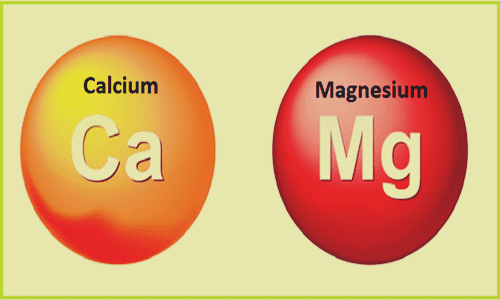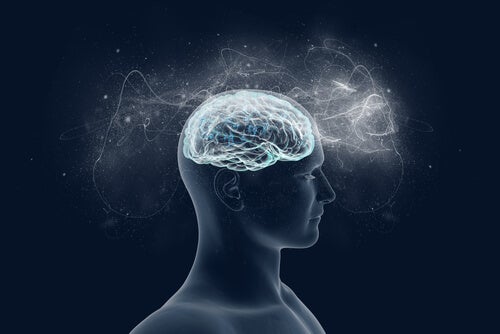Calcium and Magnesium Deficiency Can Cause Insomnia


Written and verified by the psychologist Valeria Sabater
Believe it or not, according to several clinical studies, calcium and magnesium deficiency can cause insomnia. Your diet exerts a major influence on sleep. If you don’t consume quality foods, sleeping may become a hard task for you. Taking this fact into account, consuming these two minerals on a daily basis will improve your well-being.
This is far from being a specific problem or just a sleep disorder. Actually, there’s one aspect that’s important to consider. The Department of Neuroscience at the University of Genoa conducted a study where they pointed out that a good part of traffic accidents in the world are caused by the same problem. You guessed it: insomnia and lack of attention.
The loss ratio is between 10 and 20%. Now, in addition to this obvious serious problem, there are other factors to take into account. In the case of chronic insomnia, the individual may experience mood disorders. In addition to this, they’ll also be more vulnerable to different disorders, such as depression.
As you can see, not getting good quality sleep can be dangerous. That’s why it’s so vital to learn about the factors behind this problem. Therefore, we recommend you pay attention to your diet, remembering to consume two key minerals: calcium and magnesium.

Calcium and magnesium deficiency can cause insomnia
There are a number of nutrients that, due to their effects and the processes they play a role in, encourage sleep. Now, as many nutritionists point out, many people take good nutrition for granted. They think they’ve got all the nutrients covered when, in reality, they don’t.
For example, soil, the land where fruits and vegetables grow, is becoming less and less rich in magnesium. Now, there’s another essential aspect to keep in mind. The way you cook your meals can influence the loss of many essential minerals.
That being said, it’d be good to increase the consumption of raw vegetables, seeds, and fruits. However, most people aren’t used to this, so it’s just easier to choose to cook everything the way they always have. But it’s important to think about the long-term consequences here. These day-to-day decisions are vital when it comes to health. And the effects are gradually noticeable.
Magnesium deficiency
Dr. James F. Balch, a medical surgeon, food expert, and publisher of health books explains in several of his works that calcium and magnesium deficiency can cause insomnia. The reason why he talks about this is quite simple. A lot of people decide to resort to sleep-inducing drugs without realizing that their quality of sleep and life would improve if they paid attention to their diet.
- Nowadays, magnesium deficiency is a recurring problem.
- This mineral is a muscle relaxant and a powerful inducer of deep sleep.
- Magnesium increases GABA, an amino acid that promotes relaxation and sleep.
- In addition to insomnia, those who suffer from a magnesium deficiency also often suffer from restless legs syndrome.
- On the other hand, several studies have proven that individuals who are subjected to high levels of stress tend to have a higher magnesium deficit.

Calcium deficiency
A study conducted at the Center for Sleep & Circadian Neurobiology (CSCN) of the University of Pennsylvania pointed out the following:
- Calcium is related to sleep cycles. Humans need this mineral to be able to achieve REM sleep (the stage of sleep where a deeper and more restful sleep is induced). This is also the stage where the brain performs important tasks to guarantee physical and psychological well-being.
- Likewise, calcium is key to the production of tryptophan. This amino acid plays a role in melatonin production, which, as we all know, is key to inducing sleep.
A good diet is the best therapy
Now that you know that calcium and magnesium deficiency can cause insomnia, you may be wondering how you could supply these deficiencies. The first thing that comes to mind is to go to a pharmacy and buy food supplements. However, this may not be your best bet.

Keys to fighting insomnia through diet
The first thing you should do is see your doctor. Through adequate clinical tests, you’ll know if, indeed, you have a deficiency in these nutrients or not.
Also, you can’t just ignore the other existent factors that mediate insomnia. For example, chronic pain, diabetes, stress, menopause, and poor sleep hygiene, among others.
Another important factor is taking care of your vitamin D levels. This nutrient may also be behind calcium and magnesium deficiency.
Foods rich in magnesium
- Green leafy vegetables.
- Bananas.
- Walnuts.
- Almonds.
- Chia seeds, flax seeds, and pumpkin seeds.
- Citrus fruits.
- Ripe tomatoes.
- Cocoa and dark chocolate.
- Rye and barley.
- Quinoa.
Foods rich in calcium
- Dairy products.
- Sardines.
- Almond, soy, and rice drinks.
- Sunflower seeds.
- Vegetables.
- Broccoli.
- Cabbage.
- Figs.
- Algae.
To conclude, now that you’re aware that calcium and magnesium deficiency can cause insomnia, it’s best to consult a doctor before starting to consume any supplement. In fact, even if it’s only to improve your diet, without the need for “extras”, the best thing you can do is put yourself in the hands of a specialist. In the end, following a healthy and balanced diet will save you a lot of time and money.
All cited sources were thoroughly reviewed by our team to ensure their quality, reliability, currency, and validity. The bibliography of this article was considered reliable and of academic or scientific accuracy.
- Abbasi, B., Kimiagar, M., Sadeghniiat, K., Shirazi, M. M., Hedayati, M., & Rashidkhani, B. (2012). The effect of magnesium supplementation on primary insomnia in elderly: A double-blind placebo-controlled clinical trial. Journal of Research in Medical Sciences, 17(12), 1161–1169. https://doi.org/PMC3703169
- Luna, KT (2011). Mejora el insomnio con magnesio y calcio. American Family Physician , 84 (11), 1293. https://doi.org/10.1007/s00158-003-0282-y
- Pablo Medrano-Martínez y María J. Ramos-Platón. “Alteraciones cognitivas y emocionales en el insomnio crónico”, Revista de Neurología 2016, 62 (4) 170-178.
This text is provided for informational purposes only and does not replace consultation with a professional. If in doubt, consult your specialist.








